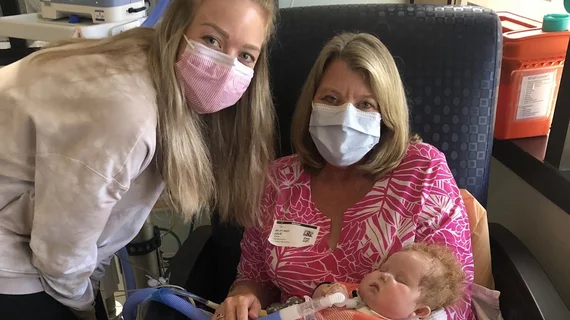Young patient recovering after world’s first combination heart transplant and thymus procedure
A one-year-old child thought to be the world’s first patient to undergo a combination heart transplant and allogeneic processed thymus tissue implantation appears to be responding well to the procedures. The processed thymus tissue implantation is designed to help the patient’s body treat the implanted heart as its own.
The young patient, Easton, was born with severe heart defects and a thymic deficiency that did significant damage to his immune system. He underwent the two procedures at Duke University Hospital in August 2021. Both the heart transplant and the tissue implantation were cleared by the FDA. Easton’s care team used a method developed by Duke’s own Louise Markert, PhD, MD, to implant the tissue.
In a new update from Duke Health, Easton’s doctors commented on Easton’s recovery, noting that his body is gaining immune cells as they had hoped. The goal is for him to gain enough of these cells that anti-rejection drugs will no longer be necessary.
“This has the potential to change the face of solid organ transplantation in the future,” said Joseph W. Turek, MD, PhD, Duke’s chief of pediatric cardiac surgery. “If this approach proves successful — and further validation is contemplated — it would mean transplant recipients would not reject the donated organ and they would also not need to undergo treatment with long-term immune-suppression medications, which can be highly toxic, particularly to the kidneys. This concept of tolerance has always been the holy grail in transplantation, and we are now on the doorstep.”
Easton’s mom, Kaitlyn, shared her own thoughts on the decision to go through with these procedures.
“It was one of those things where it could help him, and if it works, it not only helps him, but it could help thousands of other people as well with their children who need transplants,” she said. “When we talked about it, it was like ‘Why would we not do it when we can make a difference for all these other people?’”
Related Cardiac Surgery Content:
Pig heart transplant patient dies 2 months after historic procedure
How modified bioprosthetic heart valves could limit calcification, reduce need for TAVR
Debate over? On-pump CABG, off-pump CABG lead to similar 10-year outcomes

